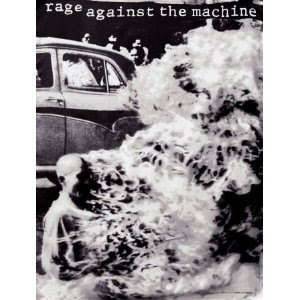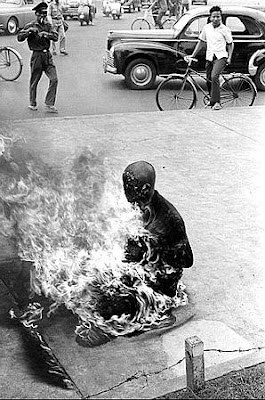
But oddly it is also a part of human nature that the human creatures are anything but simple. So while dichotomies seem to superficially and simply organize people into 2 distinct categories, they instead bring about more complications and confusions. In reality however, most human beings do not fall solidly into just 1 category of the dichotomy. There is never clearly a ‘black’ or a ‘white’. What is blindingly obvious however is the ‘greyness’ that exists.
I believe that I am also guilty of this obsession. And as the harshest critique of my own self, I often have to remind myself of the phrase that “thou shall not judge…”. Not surprisingly however, as if following the order of nature, I often see myself stumbling again repeatedly nevertheless into that dirty track of conceptualizing and compartmentalizing people. You know then that they do not just call it ‘human hubris’ for no reason.
Let’s take a very recent example which I encountered. Let’s talk about the people who belong to the ecclesiastical religious organizations – the monks, nuns, priests, ustaz etc. As members vey closely associated to the religious sphere, one would expect the mentioned groups of people to represent ‘worldly detachment’ as they serve only to God/s. Yes indeed, only to God/s and not to any political organizations or private enterprises which could taint their state of ‘holyness’. So when many of us are confronted with the image of a monk in full robe walking around with an iphone or an MP3 player in hand or perhaps even holding on to a can of Coca Cola and driving a Mercedes Benz car, who could deny that many would feel bewildered and amused as they began judging the monk as being ‘sinful’ and ‘worldly’. Many too would also add on judging the monk as ‘corrupt’ and not really doing much for the community.
In contrast to the description of the monk above, history lovers are also aware that monks are anything but passive beings. Some monks in history were found to be very involved in the community affairs – perhaps too passionately involved that they could be seen participating in the act of self-immolation as they burnt themselves in the middle of the road during the Vietnam War as a symbol of protest against the USA. Many have indeed viewed these burning monks as exemplars and modern-day heroes – oh, never mind the fact that these monks were very much involved in worldly affairs and passionately involved in the politics of the country. They are heroes, their sacrifices were ‘holy’ and as such they remained untainted - no question asked.
 Burning Monk 1
Burning Monk 1
Burning Monk 2
Again to cite another interesting example, a good friend told me that Oprah Winfrey once interviewed a group of Catholic nuns for the Oprah Winfrey show. When a call was made to a particular nun about the interview, the nun seemed confused, asking “What is Oprah Winfrey?” – indeed an indication of how detached from the worldly affairs this nun was, tying in nicely to what we initially expected of those in the religious order to be. Is this really what we want from the people belonging in the religious organizations? Do we really want them to be detached and oblivious of society and the world, keeping their focus only on serving the God/s? Or should these people play a role in politics or even in the economic affairs of the country or even in the technological innovation in the country or even perhaps be a spokesperson of the ruling government as seen in this article http://www.temasekreview.com/2010/11/26/open-letter-to-ustaz-fatris-bakaram/ ? How much and what kind of involvement of them do we want? How could we be so quick to judge others when a lot of times we are confused about our own expectations of others and that even if we say that we are clear about our expectations of others we fall into the trap of not making ourselves heard of our expectations to the concerned others?
“Thou shall not judge” – I say that’s a pretty mouthful obligation for the human me to carry out…
